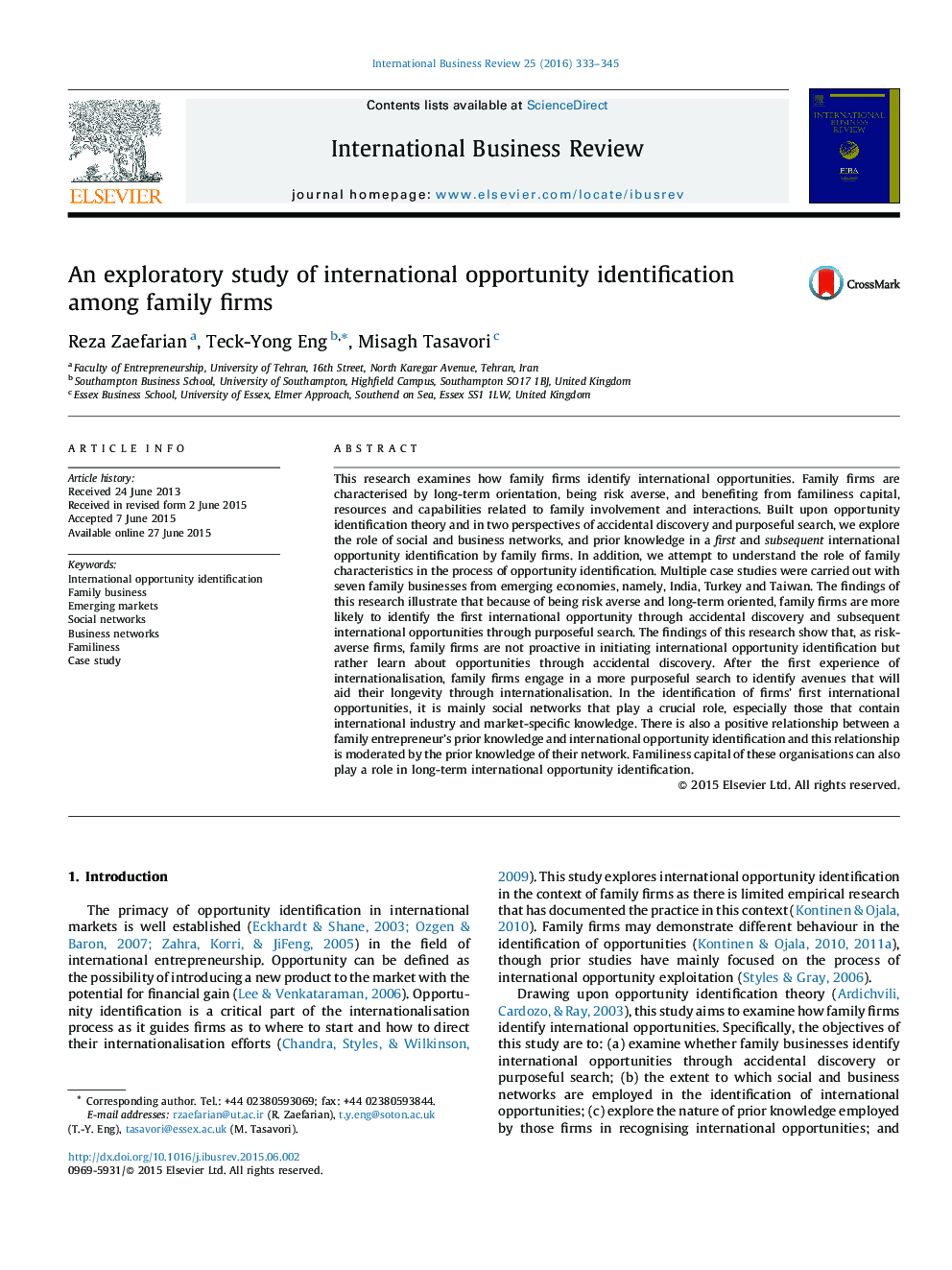| Article ID | Journal | Published Year | Pages | File Type |
|---|---|---|---|---|
| 1001254 | International Business Review | 2016 | 13 Pages |
•The study explores international activities of family firms.•Identification of first international opportunity tends to be through accidental discovery.•Subsequent identification of international opportunities can be purposeful.•Family firms engage in a systematic search for information to reduce risk of internationalisation.•Social networks play a crucial role in international opportunity identification.
This research examines how family firms identify international opportunities. Family firms are characterised by long-term orientation, being risk averse, and benefiting from familiness capital, resources and capabilities related to family involvement and interactions. Built upon opportunity identification theory and in two perspectives of accidental discovery and purposeful search, we explore the role of social and business networks, and prior knowledge in a first and subsequent international opportunity identification by family firms. In addition, we attempt to understand the role of family characteristics in the process of opportunity identification. Multiple case studies were carried out with seven family businesses from emerging economies, namely, India, Turkey and Taiwan. The findings of this research illustrate that because of being risk averse and long-term oriented, family firms are more likely to identify the first international opportunity through accidental discovery and subsequent international opportunities through purposeful search. The findings of this research show that, as risk-averse firms, family firms are not proactive in initiating international opportunity identification but rather learn about opportunities through accidental discovery. After the first experience of internationalisation, family firms engage in a more purposeful search to identify avenues that will aid their longevity through internationalisation. In the identification of firms’ first international opportunities, it is mainly social networks that play a crucial role, especially those that contain international industry and market-specific knowledge. There is also a positive relationship between a family entrepreneur's prior knowledge and international opportunity identification and this relationship is moderated by the prior knowledge of their network. Familiness capital of these organisations can also play a role in long-term international opportunity identification.
